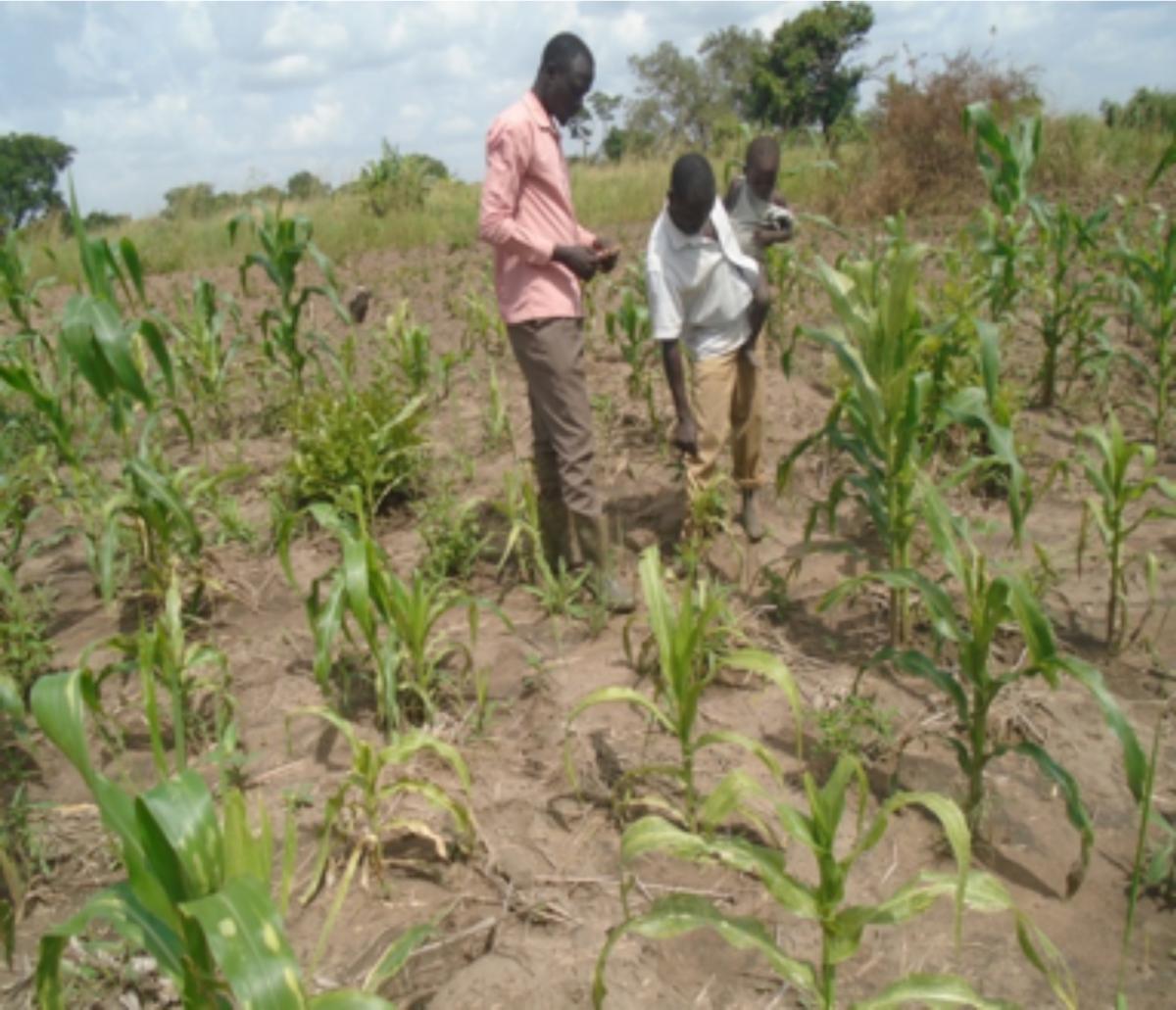Struggling families in East and Southern Africa are facing scarcity, in part due to a widespread infestation of the fall armyworm.
This pest infests large areas with caterpillars. The caterpillars feed on crops such as maize, soybean, sorghum, and cowpeas. The caterpillars turn into moths that spread to new areas, laying up to 1000 eggs in its 10-day lifetime. 1000 eggs become 1000 new caterpillars that eat the growing tips and young leaves of plants, destroying any potential for harvest. 1000 new moths each lay another 1000 eggs… the math is clear.
This spring, in response to extreme drought, World Renew supplied farmers in Uganda with cowpeas and sorghum. The fall armyworm’s breeding season coincided with the planting month of this project. The sorghum seeds that were distributed were attacked by the insect and none of them survived.
In Kaberamaido, Uganda, 54% of the maize crop has been destroyed, as well as 64% of the millet crop and 53% of the sorghum crop.
Eremu Gilbert, a farmer in the Amuria district, planted 3 acres of maize, projecting a harvest of 7-8 tons. The fall armyworm destroyed 80% of his crop and all of his hope.
Communities are trying to survive on what little food is produced, and – due to not being able to store anything for the future – lack food security. There is also no income available from selling excess harvest, which means other needs, like paying school tuition, cannot be met.
World Renew is extending its food and seed distribution project in Teso, Uganda by two months in order to provide 1200 households with maize flour, beans, cooking oil, and sweet potato tubers for planting. Each household can then grow a quarter of an acre of sweet potatoes.
Sweet potatoes are a three month crop and very nutritious; they are high in Vitamin A, can be used to make bread, and can be preserved for months. They grow in a large variety of soil types and are resistant to drought and pests like the fall armyworm. Sweet potatoes are also a familiar part of the traditional diet. Although sweet potato tubers are more expensive than the sorghum and cowpea seeds previously distributed, they will grow successful crops, which means these households will be able to provide for their own nutritional needs on an ongoing basis by the end of this response.
Change the story of hunger today.
Pray for those struggling with scarcity, and support World Renew’s Famine and Drought Response, which now factors in this devastation wrought by the fall armyworm.

